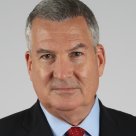Prime Minister Justin Trudeau and the country’s provincial and territorial premiers met via teleconference Thursday afternoon for about an hour — and improving vaccine distribution was the top topic.

But they also turned their attention to the recent events in Washington, D.C.
“(The prime minister) emphasized the need to work together to keep our democracy strong, healthy, and vibrant,” according to a statement issued by Trudeau’s office late Thursday night. “First Ministers discussed the importance of protecting our democracy by upholding democratic principles and institutions, and agreeing on grounding debate on common sets of facts.”
And while aides to several participants said the tone during the First Ministers Meeting was collegial, productive, positive and constructive, premiers began the meeting ready to pushback on a comment Trudeau had made earlier in the week about the pace of vaccine distribution.
“I think all Canadians, including me, are frustrated to see vaccines in freezers and not in people’s arms,” Trudeau had told reporters in Ottawa on Tuesday. “Now is the time with the new year upon us to really accelerate. And that’s certainly what I’ll be talking with the premiers about on Thursday.”
During the meeting with the premiers, Trudeau conceded that remark was not helpful, according to sources close to other premiers who attended the meeting.
- What is a halal mortgage? How interest-free home financing works in Canada
- Ontario doctors offer solutions to help address shortage of family physicians
- Capital gains changes are ‘really fair,’ Freeland says, as doctors cry foul
- Budget 2024 failed to spark ‘political reboot’ for Liberals, polling suggests
Saskatchewan Premier Scott Moe was expected to highlight that the federal government, which is responsible for purchasing and distributing vaccines, was giving conflicting information about vaccine delivery dates and vaccine shipments. Quebec Premier Francois Legault said his province was ready to start administering 250,000 doses a week and yet — Ottawa is expecting only about 1.2 million doses for the entire country to arrive by January.
Other premiers as well have complained that they cannot get enough doses of the vaccine.
“We are concerned, as we pick up the pace of innoculation, that supply will be adequate,” Alberta Premier Jason Kenney told reporters during a press conference he held Thursday in Edmonton after participating in the First Ministers Meeting. “This is a matter of the greatest urgency.”
On Thursday night, the president of the University Health Network, one of Ontario’s key vaccine centres in downtown Toronto, said it had run out of the Pfizer vaccine. UHN Network President Dr. Kevin Smith said 3,000 people were booked each day over the weekend and on Monday to get a vaccine shot — and yet, there were no vaccines to administer.
Earlier this week, the federal government said it is expecting about 208,000 doses per week of the Pfizer vaccine to be delivered for the rest of January. Ottawa is also expecting about 171,000 doses of the Moderna vaccine next week.
According to unofficial sources, just over 480,000 doses of both the Pfizer and Moderna vaccines have been distributed to the provinces and territories. Of those, about 230,000 doses or 48 per cent have been administered. Health Canada has said that both the Pfizer and Moderna vaccines are, per the manufacturers’ instructions, two-dose vaccines. In other words, a patient should receive one dose followed by a second dose between 21 and 28 days after the first dose.
Both Trudeau and Kenney will speak to reporters in separate news conferences Friday about the country’s vaccine rollout plans.
The First Ministers also spoke about border and travel issues, as well efforts to improve protections for those in long-term care facilities.





Comments